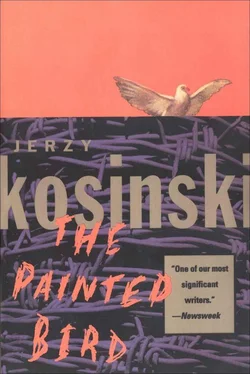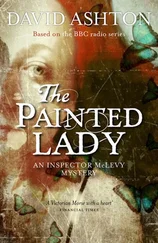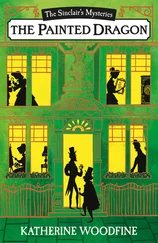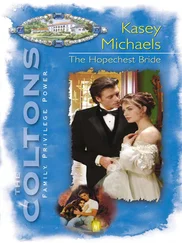Jerzy Kosiński - The Painted Bird
Здесь есть возможность читать онлайн «Jerzy Kosiński - The Painted Bird» весь текст электронной книги совершенно бесплатно (целиком полную версию без сокращений). В некоторых случаях можно слушать аудио, скачать через торрент в формате fb2 и присутствует краткое содержание. Год выпуска: 1965, ISBN: 1965, Жанр: Детская проза, на английском языке. Описание произведения, (предисловие) а так же отзывы посетителей доступны на портале библиотеки ЛибКат.
- Название:The Painted Bird
- Автор:
- Жанр:
- Год:1965
- ISBN:978-0-8021-9575-3
- Рейтинг книги:4 / 5. Голосов: 1
-
Избранное:Добавить в избранное
- Отзывы:
-
Ваша оценка:
- 80
- 1
- 2
- 3
- 4
- 5
The Painted Bird: краткое содержание, описание и аннотация
Предлагаем к чтению аннотацию, описание, краткое содержание или предисловие (зависит от того, что написал сам автор книги «The Painted Bird»). Если вы не нашли необходимую информацию о книге — напишите в комментариях, мы постараемся отыскать её.
The Painted Bird — читать онлайн бесплатно полную книгу (весь текст) целиком
Ниже представлен текст книги, разбитый по страницам. Система сохранения места последней прочитанной страницы, позволяет с удобством читать онлайн бесплатно книгу «The Painted Bird», без необходимости каждый раз заново искать на чём Вы остановились. Поставьте закладку, и сможете в любой момент перейти на страницу, на которой закончили чтение.
Интервал:
Закладка:
But God, in His impenetrable wisdom, waited. Fires burned around the huts, and the paths and gardens and yards were fumigated with smoke. The ringing strokes of axes and the crash of falling trees could be heard from the neighboring forests as the men hewed the wood needed to keep the fires alive. I heard the crisp, sharp sounds of ax blade on trunk coursing through the clear, still air. As they reached the pastures and the village they became strangely muffled and faint. As a fog hides and dims a candle flame, so the silent brooding air, heavy with disease, absorbed and enmeshed these sounds in a poisoned net.
One evening my face began to burn and I shook with uncontrollable throbs. Olga looked for a moment into my eyes and placed her cold hand on my brow. Then rapidly and wordlessly she dragged me toward a remote field. There she dug a deep pit, took off my clothes, and ordered me to jump in.
While I stood at the bottom, trembling with fever and chill, Olga pushed the earth back into the pit until I was buried up to my neck. Then she trampled the soil around me and beat it with the shovel until the surface was very smooth. After making sure there were no anthills in the vicinity, she made three smoky fires of peat.
Thus planted in the cold earth, my body cooled completely in a few moments, like the root of a wilting weed. I lost all awareness. Like an abandoned head of cabbage, I became part of the great field.
Olga did not forget me. Several times during the day she brought cool drinks which she poured into my mouth and which seemed to drain right through my body into the earth. The smoke from the fires, which she stoked with fresh moss, misted my eyes and stung my throat. Seen from the earth’s surface when the wind occasionally cleared the smoke away, the world looked like a rough rug. The small plants growing round about loomed as tall as trees. When Olga approached she cast an unearthly giant’s shadow over the landscape.
Having fed me at twilight for the last time, she threw fresh peat on the fires and went to her hut to sleep. I remained in the field, alone, rooted into the earth which seemed to draw me down deeper and deeper.
The fires burned slowly and the sparks jumped like glow-worms into the infinite blackness. I felt as though I were a plant straining toward the sun, unable to straighten its branches, restrained by the earth. Or again, I felt that my head had acquired a life of its own, rolling faster and faster, picking up dizzying speed until it finally struck the disk of the sun which had graciously warmed it during the day.
At times, feeling the wind on my brow, I went numb with horror. In my imagination I saw armies of ants and cockroaches calling to one another and scurrying toward my head, to some place under the top of my skull, where they would build new nests. There they would proliferate and eat out my thoughts, one after another, until I would become as empty as the shell of a pumpkin from which all the fruit has been scraped out.
Noises woke me. I opened my eyes, uncertain of my surroundings. I was fused with the earth, but thoughts stirred in my heavy head. The world was graying. The fires had gone out. On my lips I felt the cold of streaming dew. Drops of it settled on my face and in my hair.
The sounds returned. A flock of ravens circled over my head. One of them landed nearby on broad rustling wings. It approached my head slowly while the others began to alight.
In terror I watched their shining black-feathered tails and darting eyes. They stalked around me, nearer and nearer, flicking their heads toward me, uncertain whether I was dead or alive.
I did not wait for what would come next. I screamed. The startled ravens leapt back. Several rose a few feet into the air, but touched ground again not far off. Then they glanced suspiciously at me and began their circuitous march.
I shouted once more. But this time they were not frightened, and with increasing boldness advanced ever more closely. My heart thudded. I did not know what to do. I screamed again but now the birds showed no fear. They were only two feet from me. Their shapes loomed larger and larger in my eyes, their beaks grew more and more vicious. The curved widespread claws of their feet resembled huge rakes.
One of the ravens halted in front of me, inches from my nose. I yelled right into its face, but the raven only gave a slight jerk and opened its beak. Before I could shout again, it pecked at my head and several of my hairs appeared in its bill. The bird struck again, tearing out another tuft of hair.
I turned my head from side to side, loosening the earth around my neck. But my movements only made the birds more curious. They surrounded me and pecked at me wherever they could. I called loudly, but my voice was too weak to rise above the earth and only seeped back into the soil without reaching the hut where Olga lay.
The birds played with me freely. The more furiously I swiveled my head to and fro, the more excited and bold they became. Seeming to avoid my face, they attacked the back of my head.
My strength ebbed. To move my head each time seemed like shifting a huge sack of grain from one place to another. I was crazed and saw everything as through a miasmal fog.
I gave up. I was myself now a bird. I was trying to free my chilled wings from the earth. Stretching my limbs, I joined the flock of ravens. Borne abruptly up on a gust of fresh, reviving wind, I soared straight into a ray of sunshine that lay taut on the horizon like a drawn bowstring, and my joyous cawing was mimicked by my winged companions.
Olga found me in the midst of the swarming flock of ravens. I was nearly frozen and my head was deeply lacerated by the birds. She quickly dug me out.
After several days my health returned. Olga said that the cold earth had driven the sickness out of me. She said that the disease was picked up by a throng of ghosts transformed into ravens which tasted my blood to make sure that I was one of them. This was the only reason, she asserted, they did not peck my eyes out.
Weeks passed. The plague subsided and fresh grass grew on the many new graves, grass that one could not touch because it surely contained poison from the plague victims.
One fair morning Olga was summoned to the river-bank. The peasants were pulling from the water a huge catfish with long whiskers stiffly sprouting from its snout. It was a powerful-looking, monstrous fish, one of the largest ever seen in that region. While catching it one of the fishermen had a vein cut by his net. While Olga was applying a tourniquet to his arm to stem the gushing blood, the others disemboweled the fish and, to everyone’s joy, extracted the air bladder, which was undamaged.
Suddenly, at a moment when I was completely relaxed and unsuspecting, a fat man raised me high in the air and shouted something to the others. The crowd applauded and I was swiftly passed from hand to hand. Before I realized what they were doing, the large bladder was thrown into the water and I was flung on top of it. The bladder sank a little. Someone shoved it with a foot. I began to float away from the riverbank, feverishly hugging the buoyant balloon with my legs and hands, plunging now and again into the cold brownish river, screaming and begging for mercy.
But I was drifting farther and farther away. The people ran along the riverbank and waved their hands. Some hurled rocks which splashed at my side. One almost hit the bladder. The current was fast carrying me into the middle of the river. Both banks seemed unreachable. The crowd disappeared behind a hill.
A fresh breeze, which I had never felt on land, rippled over the water. I moved smoothly downstream. Several times the bladder sank almost completely under the light waves. But it bobbed up again, sailing on slowly and majestically. Then abruptly I was swept into a whirlpool. Round and round the bladder swirled, pulling away from and returning to the same spot.
Читать дальшеИнтервал:
Закладка:
Похожие книги на «The Painted Bird»
Представляем Вашему вниманию похожие книги на «The Painted Bird» списком для выбора. Мы отобрали схожую по названию и смыслу литературу в надежде предоставить читателям больше вариантов отыскать новые, интересные, ещё непрочитанные произведения.
Обсуждение, отзывы о книге «The Painted Bird» и просто собственные мнения читателей. Оставьте ваши комментарии, напишите, что Вы думаете о произведении, его смысле или главных героях. Укажите что конкретно понравилось, а что нет, и почему Вы так считаете.












